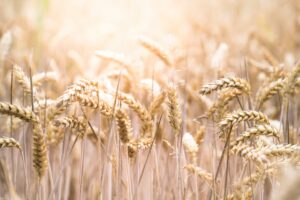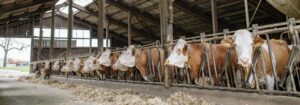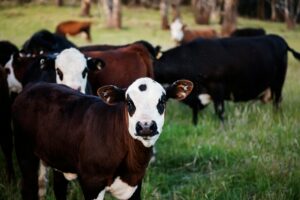Introduction
Canning and preserving fruit and vegetables holds numerous advantages for human beings and food security.
- Food is placed in the airtight container and cooked during the canning process, which safeguards the food from decay. No preservatives are needed.
- The transport and storage of food is easier. Food can be stored for long periods of time without needing refrigeration.
- Products such as peaches, pears and apricots are also available now throughout the year.
- The food is quickly and easily served.
International business environment
The Canned Food Market size was estimated at USD 109.5 billion in 2025, and was expected to reach USD 139.64 billion by 2030, growing at a CAGR of 4.98% during the forecast period (2025-2030) (Mordor Intelligence, 2025).
Further reference:
- Read about Mordor Intelligence’s 2025 report “Canned Food Market Size & Share Analysis – Growth Trends & Forecasts (2025-2030)” at www.mordorintelligence.com/industry-reports/canned-food-market.
South Africa: imports and exports
The industry exported a total of R15.5 billion to over 125 countries across about 50 product lines in 2024 (Atwood-Palm, 2025). About 34% or R5.3bn of this amount went to Europe. The largest market globally for SA is the Netherlands, which is also the European Union’s main port of entry. Germany is ranked as our 6th largest market (Atwood-Palm, 2025).
Further reference:
- Media Statement. 2025, September 29. “Fruit and vegetable canners export council off to Germany on a mission to grow exports.” The DTIC. Available at www.thedtic.gov.za/fruit-and-vegetable-canners-export-council-off-to-germany-on-a-mission-to-grow-exports/
- Find the USDA‘s Foreign Agricultural Service “South African Canned Fruit Trade” report (2023, June) on the Internet.
- Read the SA Fruit and Vegetable Canners’ Association (SAFVCA) page at www.safvca.cn.
Local business environment
Find news and information like tree census summaries, cultivars and fruit grading in the magazine DIE KRAT at https://cfpa.co.za/.
The industry is labour-intensive and export-driven.
The three main sectors of this industry – covering products which are canned, preserved or otherwise processed from fruit, vegetables and tomatoes and other related products – are:
- Deciduous fruit: based in the Western Cape. Includes products such as canned fruit, fruit in plastic cups, fruit purees, fruit concentrates and jams manufactured from the same raw material base.
- Pineapples: based in the Eastern Cape. Includes products such as canned pineapples, pineapple purees and concentrates.
- Tomatoes and vegetables: based in various parts of the country. Includes products such as canned and bottled vegetables, tomatoes, pulps, purees, pastes, sauces, spreads and condiments.
The canning industry – stone fruit (peaches and apricots) in particular – continue to face challenges. That the area planted for fruit canning purposes in declining is a cause for concern.
For the newcomer
- Developing new farmers is very difficult, as start-up costs are high and the market highly volatile.
- Canning fruit diversifies market risks, with the canning segment of producers’ farms generating 10% to 50% of income. Most producers are therefore also producing other commodities. At the moment, canning fruit is alleviating the impact of low earnings from other commodities.
- Be sensitive to what is happening in the market and understand that supply and demand is the only thing that affects prices. Moreover, supply the market with good quality products that comply with market standards.
- Globally, there’s a growing concern about food safety and producers need to supply the market with guarantees that their produce is safe to eat.
Source: extracts from “Opportunities in the Canned Fruit industry”, an article in Farmer’s Weekly, August 23 2016.
National strategy and government contact
Of relevance is the Agricultural Product Standards Act: Regulations relating to Grading, Packing and Marking of Canned and Pickled Vegetables intended for sale in Republic of South Africa.
Processing and value add in agriculture is recognised by government as an important contributor towards job creation and poverty alleviation in South Africa. Accordingly, the sector currently enjoys the support of the Department of Trade, Industry and Competition (the dtic) to promote its products in global markets. “Fruits and vegetables” was one of the areas identified by the old APAP (Agricultural Policy Action Plan) as holding enormous potential in the country’s achieving the goals set out in the National Development Plan (NDP).
The Public Private Partnership Fruit Canning Initiative between SAFVCA and the dtic was intended to “create a sustainable platform for the long-term growth and competitiveness of the industry”. The PPP is aligned with the National Development Plan (NDP 2030), the Industrial Policy Action Plans (IPAPs) and the Integrated National Export Strategy (INES).
- Department of Agriculture Directorate: Food Safety and Quality Assurance www.nda.gov.za
Role players
View the Premium Listings below (scroll down or click on “Premium Listings” on the Table of Contents to the right).
Further reference:
Associations involved
- The Canning Fruit Producers’ Association (CFPA) CFPA is a voluntary association of canning fruit farmers in the Western- and Eastern Cape regions. The Association aims to serve the apricot, pear and peach growers and act on their behalf. They offer the services of: (i) grading regulations relating to the grading of fresh apricots, clingstone peaches and pears intended for processing in a factory (ii) setting spraying recommendations for maximum residue limits (iii) the handling of samples for residue analysis (iv) plant improvement.
- The SA Fruit and Vegetable Canners’ Association (SAFVCA) is a voluntary grouping of fruit and vegetable canning/processing industry members. Its focus is the general manufacturing interests of this industry. The SA Fruit & Vegetable Canners’ Export Council (SAFVCEC) operates in association with SAFVCA. Its focus is export promotion and development.
Training and research
- Research for the fresh production of canning fruit is contracted to universities, as well as to the ARC-Infruitec/Nietvoorbij.
- Canning companies provide learnerships and do HACCP training for their staff. Companies involved also do research – investigating new products and varieties.
Companies
- In addition, there are other vegetable canners and pulp/puree processors whose contact details may be obtained from SAFVCEC.
See also “Fruit and vegetable juices” and the various fruit pages on the Agribook website.
Websites and publications
Visit the role player websites listed earlier on this page.
- Die Krat is a bi-monthly newsletter which contains practical information regarding the canning fruit industry. Contact the CFPA for more information.
- Find the “Canning” article at the Food Advisory Consumer Services (FACS) website, https://foodfacts.org.za/canning.
- The industry is export orientated. Box 5 in the Bureau for Food & Agricultural Policy (BFAP) 2022-2031 Baseline chapter “Prospects for Agro-processing” looked at canned fruit and vegetables.
Some articles
- Botha L. 2025, November 28. “‘Nuwe’ inmaakfabriek op Ashton neem eerste appelkose in [‘New’ canning factory at Ashton accepts first apricots].” Landbouweekblad. Available at www.landbou.com/markte/marknuus/nuwe-inmaakfabriek-op-ashton-neem-eerste-appelkose-in-20251128-0453
- Price I. 2025, September 30. “New dawn for Ashton factory as Langeberg Foods takes over.” Food for Mzansi. Available at www.foodformzansi.co.za/new-dawn-for-ashton-factory-as-langeberg-foods-takes-over
- Kriel G. 2025, September 30. “Global canning industry grapples with climate and market pressure.” Farmer’s Weekly. Available at www.farmersweekly.co.za/agri-business/agribusinesses/global-canning-industry-grapples-with-climate-and-market-pressure
- Jansen C. 2025, May 20. “Lifeline for South African canning fruit industry.” Fresh Plaza. Available at www.freshplaza.com/africa/article/9733834/lifeline-for-south-african-canning-fruit-industry/
- Reporter. 2025, May 19. “Tiger Brands to sell canned fruit business Langeberg and Ashton Foods for R1”. Bizcommunity. Available at www.bizcommunity.com/article/tiger-brands-to-sell-canned-fruit-business-langeberg-and-ashton-foods-for-r1-251617a
- Staff Reporter. 2024, August 31. “Plan needed to boost Mzansi’s deciduous fruit canning industry”. Food for Mzansi. Available at www.foodformzansi.co.za/plan-needed-to-boost-mzansis-deciduous-fruit-canning-industry/
- Campbell S. 2024, August 29. “Action needed to reverse SA canned deciduous fruit sector’s declining competitiveness”. Engineering News. Available at www.engineeringnews.co.za/article/action-needed-to-reverse-sa-canned-deciduous-fruit-sectors-declining-competitiveness-2024-08-29
- Petersen C. 2023, June 10. “Tiger Brands’ delay in closing Langeberg & Ashton factory gives farmers hope”. Eye Witness News. Available at https://ewn.co.za/2023/06/10/tiger-brands-delay-in-closing-langeberg-and-ashton-factory-gives-farmers-hope
- Jansen C. 2022, July 14. “South African fruit cannery hopes exports to China regain momentum”. Fresh Plaza. Available at www.freshplaza.com/article/9445075/south-african-fruit-cannery-hopes-exports-to-china-regain-momentum/
- Isaacs L. 2022, July 13. “AgriSA welcomes decision to keep fruit canning factory in Ashton in operation”. Eye Witness News. Available at https://ewn.co.za/2022/07/13/agrisa-says-keeping-tiger-brands-factory-in-operation-is-vital-for-the-sector
- Parker D. 2022, June 23. “Farmers petition government to intervene in Tiger Brands factory closure”. Engineering News. Available at www.engineeringnews.co.za/article/farmers-petition-government-to-intervene-in-tiger-brands-factory-closure-2022-06-23/rep_id:4136
- Van der Walt J. 2021, January 18. “Apricot canning industry recovers after difficult period”. Farmer’s Weekly. Available at www.farmersweekly.co.za/agri-news/south-africa/apricot-canning-industry-recovers-after-difficult-period/
- Reporter. 2020, March 18. “SA’s Rhodes Foods Group to supply Walmart stores”. Bizcommunity. Available at www.bizcommunity.com/Article/196/162/201686.html
- Kriel, G. 2017, December 11. “Mechanised fruit farming: increase profits and create jobs”. Farmer’s Weekly. Available at www.farmersweekly.co.za/crops/fruit-nuts/mechanised-fruit-farming-profits-jobs/






